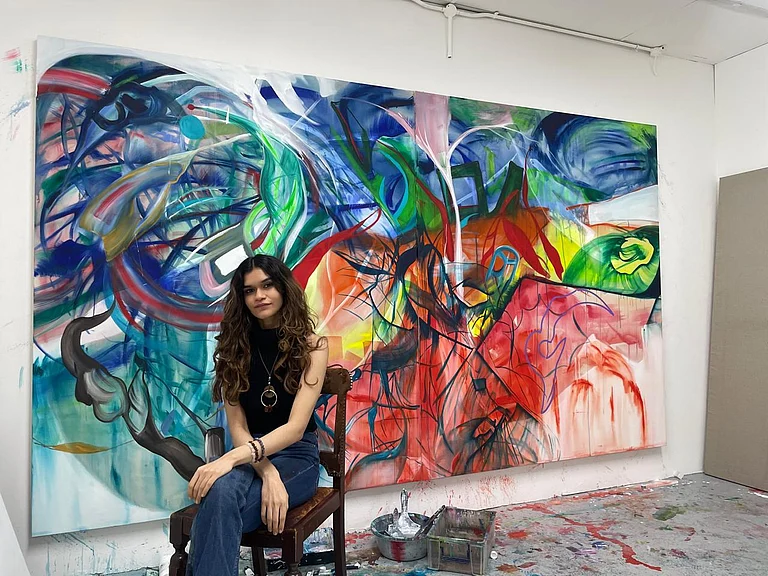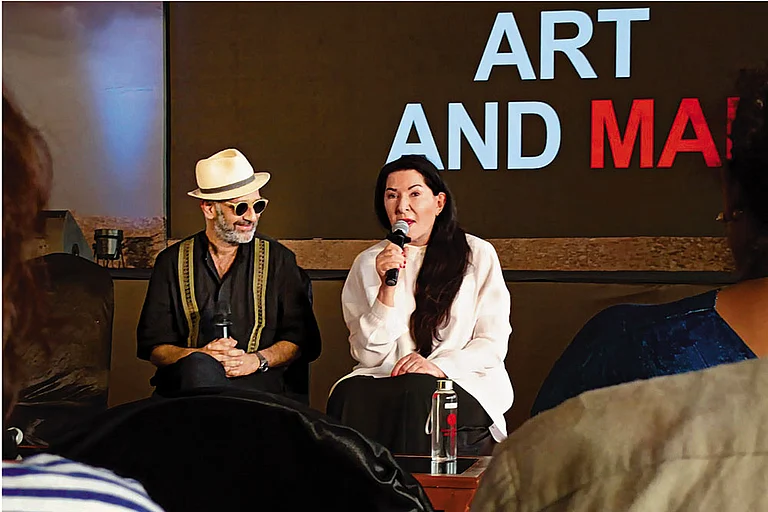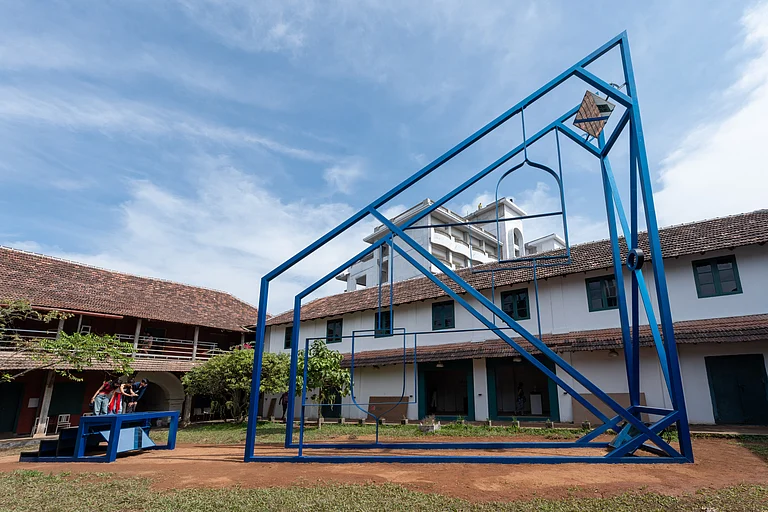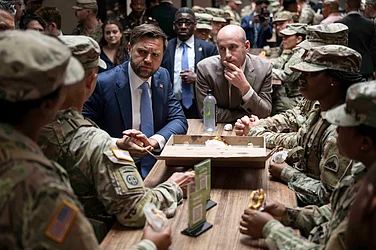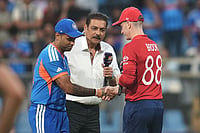I am the grandchild of survivors of Nakba, the beginning of the ethnic cleansing of Palestinians that has continued ever since. But I did not know this when I was a child. My grandfather raised me to always look at the brighter side of life in any situation. He always spoke of Palestinians in a loving, longing manner, reminding us of the importance of a family. When I learnt fully of my identity a few years ago, I wrote down a long list of questions to prompt my grandfather to tell me his story. Until that moment, I did not realise that the Nakba stories I had heard from thousands of Palestinians also applied to him. That was the first time I saw this sweet, kind man crumble and curl up like a child with so much trauma that it broke my heart.
I sat there listening as he told me about his past wounds that he had learnt to overcome. During the massacres of 1948, people in his village hid their children and newborns in ancient caves so that if the parents were murdered, the children would live on. He remembers the fear he felt inside the caves as a child. When the tanks and Zionist gangs got closer to his home, his parents, my great-grandparents, were forced to walk on foot and leave everything behind. They thought it was temporary, that they would be able to return one day. My grandmother died a refugee in Lebanon, just 30 minutes away from her village in exile in Akka (Acre), Palestine.
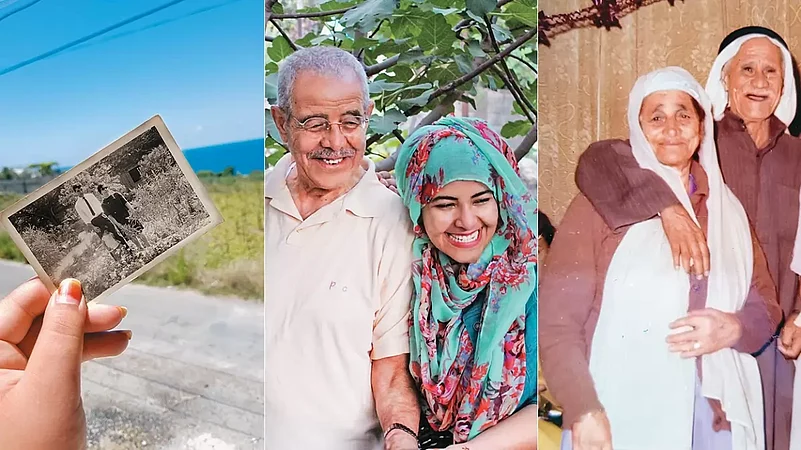
Heba’s Family: (Right) Heba’s grandparents in the 1950s; (middle) Heba with her grandfather; (extreme right) Heba’s great-grandparents, who were Nakba survivors
My fight for my identity starts from there. I am a Kuwaiti-Palestinian, which means I grew up with two beautiful cultures and an unstoppable love for freedom and resistance. My identity makes even my existence a political statement. I, like every Palestinian in the diaspora, the refugee camps or in Palestine, is proof that we exist. It has been 75 years, but I cannot give up the fighting fire that my grandparents passed on to me. I believe Nina Simone put it succinctly — an artist’s duty is to reflect the times. I let my art be a testament to my political identity. I use it to represent my people and speak up for indigenous rights and oppression around the world.

Passport for Survival: Refugee documents of Heba’s family
As Palestinian artists, we struggle to be centred. I am met with a range of expressions on social media, from pity to hate and disgust. I get told we don’t exist, that we are the reason there is no peace. There is so much Islamophobia, anti-Palestinian, and anti-Arab discrimination to erase or steal our culture, art and traditions. We remain unprotected or easily removed from the platform because our identity or expression offends those who refuse to humanise us. But every Palestinian artist —whether a painter, photographer, poet or writer— wields their creativity in a passionate act of resistance.

Passing on Memories: Heba’s grandparents

Pain of Palestinian Men: Heba’s artwork depicting the face of a young man as he curiously looks at the viewer against the backdrop of six Palestinians who were held in the occupation prison of Gilboa
I was never allowed to go back to visit my own roots. I tried, but we, the refugees, are not even allowed to apply for a visit to our homeland. But my achievement, one of my fondest memories, was when after spending years apart, I managed to unite all my family in exile in one country. I filmed my grandparents meet their great-grandchildren for the first time. I watched my family find comfort in each other’s company. When my grandmother was diagnosed with Alzheimer’s disease, she could not recognise us anymore. But when I sat beside her, she just began to talk to me like she did when I was a child. She softly told me stories about how generous my great-grandfather was. How any stranger brought to the village was always sent to their house because he welcomed them with open arms. Their villages may have been wiped out and turned into settlements, but the blood of love and resistance that our great-grandparents passed down to us is stronger than ever.
As told to Sharmita Kar
(This appeared in the print as 'I Let My Art Be a Testament to My Political Identity')



